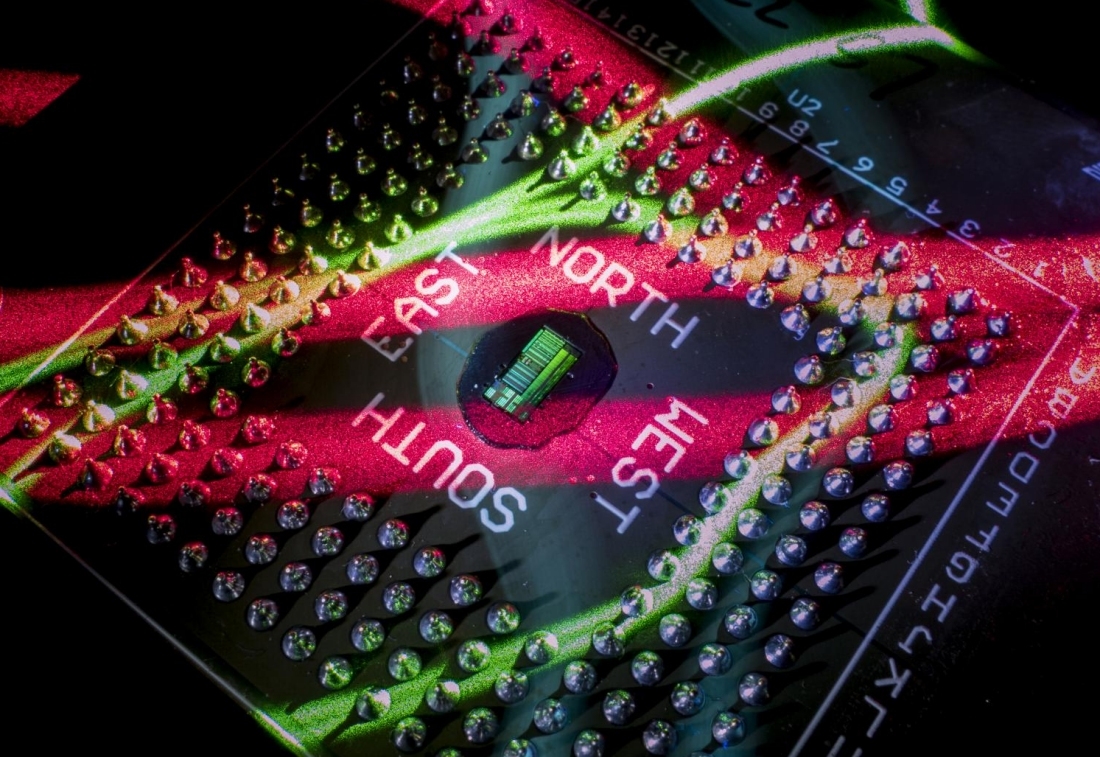
Researchers have for the first time successfully demonstrated a microprocessor that uses optical connections instead of traditional electrical wires to transmit data.
Technology Review reports that researchers from MIT, the University of California, Berkeley and the University of Colorado Boulder developed a prototype chip featuring more than 70 million transistors and 850 optical components.
The chip is linked to memory via optical fibers, transmitters and receivers, the publication notes, which enables incredibly fast data transfers. The prototype was able to transfer data at a rate of 300 gigabits per second. According to the researchers, that's anywhere from 10 to 50 times faster than a traditional electrical wire-based processor.
It's not just the raw speed that's impressive. Chen Sun, a researcher from the University of California, Berkeley, estimates that as much as 30 percent of energy used in data center servers is spent transferring data between processor, memory and networking cards. In an environment like that, optical-based processors could save huge amounts of energy which in turn would significantly reduce operating costs.
The researchers commissioned GlobalFoundries to manufacture the prototypes. Despite the fact that the fab is an older generation, it's still a significant achievement, says Shayan Mookherjea, an electrical engineer at the University of California, San Diego. Moving to a newer fab, however, will take additional work.
Image courtesy Glenn J. Asakawa, University of Colorado
https://www.techspot.com/news/63246-researchers-develop-ultra-fast-light-based-microprocessor.html